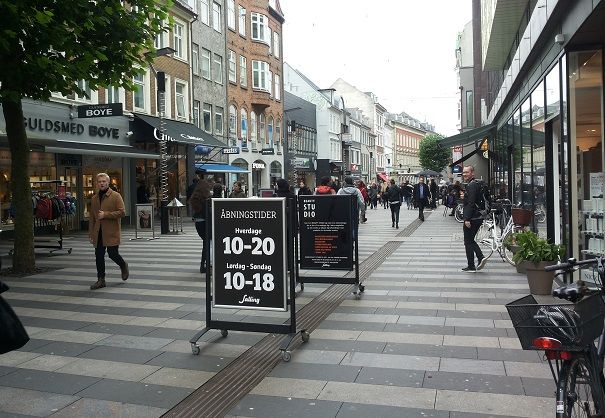The amount of vacant Danish retail space increased by around 20 percent in 2018 – from 676,700 to 799,300 sqm – while the number of empty stores grew from 1,598 to 1,754.
Region Syddanmark is the worst hit, and in south Jutland and on Funen, a third of all retail space lies empty. But the biggest loser in 2018 was south and west Zealand, where the amount of vacant space doubled.
Experts blame the increase in online shopping – e-commerce took 20 percent of total spending in 2018, as Danes spent 133.5 billion kroner – and the dominance of the large shopping centres, which continue to thrive.
Flying Tiger Copenhagen to consolidate after period of rapid growth
Flying Tiger Copenhagen has confirmed plans to make 40 employees redundant at its headquarters in Christianshavn as it seeks to address a slide in profits and consolidate after a period of rapid growth that saw it open a new store every three days last year. The last set of results, posted for 2017, reveal a small profit of 4.1 million kroner despite a turnover of more than 5 billion. Tiger opened its first store at Islands Brygge in 1988, and it currently operates 988 (77 in Denmark) in 30 countries, employing 5,800 workers. In total, the HQ is expected to sustain 75 redundancies this year. The majority owner is the equity fund EQT, which bought a 70 percent stake for around 1.5 billion off the founder Lennart Lajboschitz in 2013.
Analysts predict a testing 2019 for Maersk
Maersk shares fell 12 percent last week following its confirmation that expectations are modest for 2019, despite an increase in revenue to nearly 250 billion kroner in 2018. Analysts expect 2019 to be a testing year for the shipper for four core reasons: the US-China trade war; the increased cyber threat (an attack in 2017 cost Maersk 1 billion kroner); rising fuel prices (1 billion dollars more expensive than in 2017); and the general slowdown in the economic recovery, which will lead to a fall in container numbers and half-empty ships at a time when Maersk has been expanding its fleet.
Plans confirmed for toy shop reopening
Supermarket chain owner Salling Group has confirmed the final 11 locations at which it will reopen Fætter BR stores. In total it will reopen 26 of the stores and rehire 300 employees. Some of the 26 locations are new premises. Some 1,200 toy shop employees were made redundant in December and January when Top-Toy, the owner of Fætter BR and Toys”R”Us, went bankrupt, of which an estimated 700 worked for Fætter BR. Five stores are opening in the capital region: at the Fields, Fisketorvet and Frederiksberg Center shopping centres, on the Vimmelskaftet stretch of Strøget and at the former Toys”R”Us shop in Rødovre.














